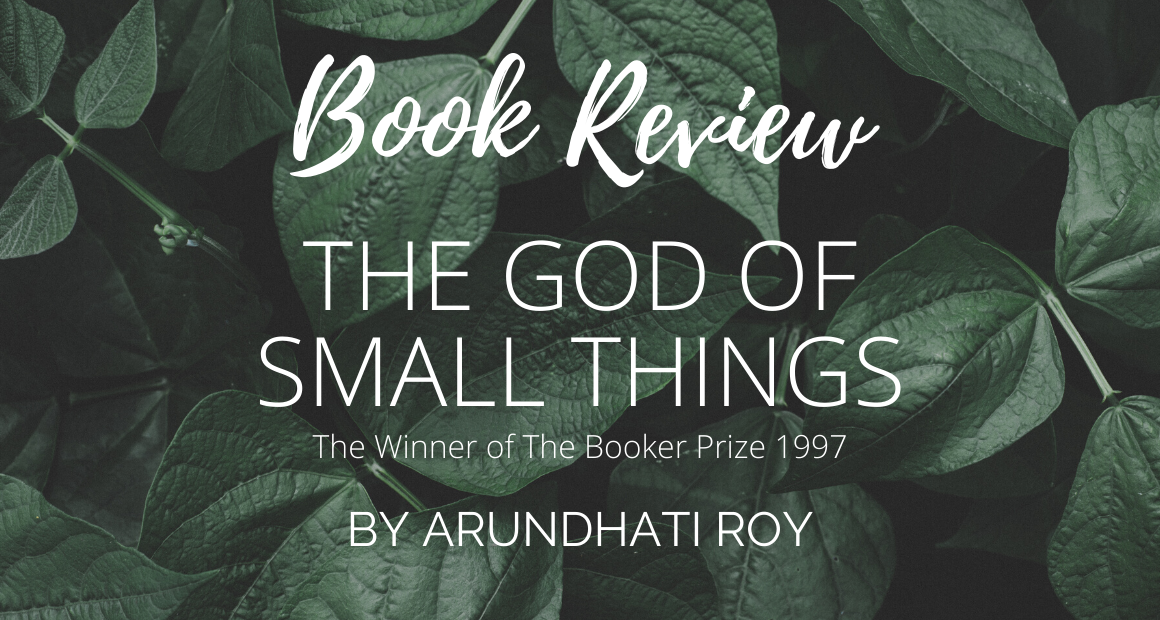" It's a book but rare that time offers " would be the best to say. It's deep and much clever in context. Ah! I'd say it has moved me to some extent.
A novel you dream that had it come across early into your hands, it would have been fairly better. The author has brought life to a language of her own which involves a gamut of poetic devices and painful similes, to say the least. Her grammatical style is a kind I haven't read before. It's a read that asks deliberate patience and continuous presence of heart and mind. The sufferings demonstrated and dingy truths portrayed don't make it easy for you to open the book next time. But still, due to the what-next suspense, the story finds its way to us.
So the story mainly revolves around Velutha and the two egg-twins who because of chance are called Rahel and Estha. The tale is told through the eyes of Rahel and at times by the narrator. The twins have a mom they called Ammu, a bold and down-to-earth woman. The story is based in a town called Ayemenem in Kerala. The story begins with a bleak note that claims: What had happened to Estha? Why does he keep diving himself into the fearful solace? Sophie Mol is a beautiful, dimpled-face British fairy who in her mother's disguise has come along from abroad to see her father's hometown. She wants to be friends with Rahel and Estha but fate is never too kind to be vouched for, in her case. Sophie's father Chacko owns a Paradise Pickles Preserves shop that brings home the money.
The story has marxism, inequality, domestic oppression, us v/s them mindset, India's old caste dynamics and ruthless deeds implanted in it. From police to skilled carpenters everyone gets along with the pages. The way the story trudges its way from Mamachi's home to a lonely jungle by the river, resting boat above the river, is just the saddest of all sad. There's a historic house which has witnessed the sayings and heard the scenes of the end. It has survived but the ones who were around it are lost somewhere now.
In the end, it is happily all about the small things. Velutha and Ammu are the sole carriers of the beauty and goodness these small things possess. The flies, the caterpillars, the love, the setting of making love, the wise choices and hardstands is what gets counted under small things, as Arundhati Roy puts. They just stick to the small things. In fact, in this problematic world like ours, it takes a heart to be at peace with small things.
This is not any wholesome or satisfactory review, as far as I am aware. There's more to this book, as the language is what gets complicated at places.
Favorite quotes from the Book.
“Things can change in a day.”
“Some things come with their own punishments.”
“D’you know what happens when you hurt people?’ Ammu said. ‘When you hurt people, they begin to love you less. That’s what careless words do. They make people love you a little less.”
“Change is one thing. Acceptance is another.”
“Her grief grieved her. His devastated her.”
"As if happiness in a dream counts."
“She wore flowers in her hair and carried magic secrets in her eyes. She spoke to no one. She spent hours on the riverbank. She smoked cigarettes and had midnight swims...”
“There is a war that makes us adore our conquerors and despise ourselves.”
“Ammu said that human beings were creatures of habit, and it was amazing the kind of things one could get used to.”
“It is curious how sometimes the memory of death lives on for so much longer than the memory of the life that is purloined. ”
“Nothing mattered much. Nothing much mattered. And the less it mattered the less it mattered. It was never important enough. Because Worse Things had happened. In the country that she came from poised forever between the terror of war and the horror of peace Worse Things kept happening”
“Little events, ordinary things, smashed and reconstituted. Suddenly, they become the bleached bones of a story.”
...and yet there are many more :)
